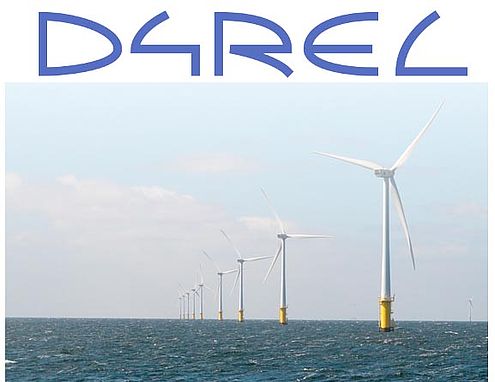Reliable Performance in Wind Turbine Systems
Design for Reliable Power Performance in Wind Turbine Generator Systems

A major challenges faced by offshore wind turbines is the high Operation and Maintenance (O&M) cost which lead to a higher Cost of Energy (CoE). In such a scenario, improved reliability of wind turbines can be a major factor in lowering the O&M costs and therefore, the CoE. Even though the reliability of wind turbines has improved over time, they still see high failure rates. Of these failures, the drivetrain is a source of problem and fails often. It is evident that addressing the failure rates of the drivetrain could have a major impact on the overall reliability, and hence the CoE, of the wind turbine.
The principal objective of the Design for Reliable Power Performance (D4REL) project is to improve the reliability and controllability of offshore wind turbines and thereby reduce the operational uncertainty of future offshore wind power plants. In particular, this work package of the project aims at improving the availability of electrical generator systems by using modular conversion system concepts that are fault tolerant and re-configurable.
This project focuses on the generator system of the wind turbine and is organised under the following tasks,
- Analysis of failures
- Methods for avoiding failures
- Analysis of fault tolerance
- Analysis of improvement in availability for selected case studies.
The D4REL project is coordinated by ECN and is a joint R&D project carried out by TU Delft, ECN, Siemens, ENECO, Ballast-Nedam, IHC Hydrohammer and van Oord.